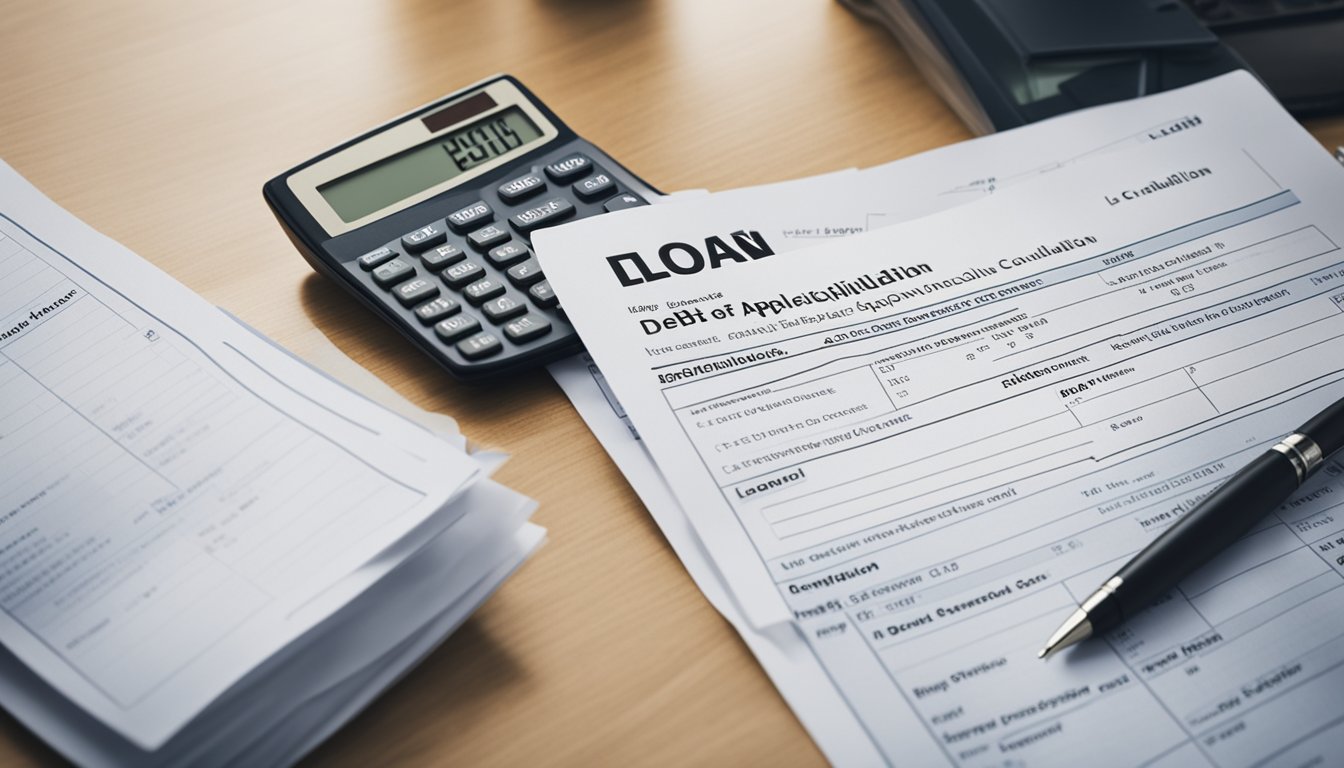If you have multiple debts, you might find it hard to manage them all. You may have to keep track of different payment dates, interest rates, and terms and conditions. Debt consolidation is a way to simplify your finances by combining all your debts into one loan. This can make it easier to manage your debts and save you money in interest charges.

In Singapore, you can get a loan to consolidate your debts. This loan can be used to pay off your existing debts, leaving you with just one loan to manage. However, not everyone is eligible for a debt consolidation loan, and there are different options to consider. In this article, we will explore the different aspects of debt consolidation in Singapore, including eligibility criteria, comparing options, and managing your consolidated debt.
Key Takeaways
- Debt consolidation is a way to simplify your finances by combining all your debts into one loan.
- Not everyone is eligible for a debt consolidation loan, and there are different options to consider.
- It is important to understand the financial implications of consolidating your debts and to manage your consolidated debt effectively.
Understanding Debt Consolidation in Singapore

If you have multiple loans with high-interest rates, it can be challenging to keep track of all your payments. That’s where debt consolidation comes in.
What Is Debt Consolidation?
Debt consolidation is the process of combining multiple debts into a single loan. This loan typically has a lower interest rate than the original debts, making it easier to manage your finances. In Singapore, one of the most popular debt consolidation options is the Debt Consolidation Plan (DCP).
Benefits of a Debt Consolidation Plan (DCP)
A DCP can help you in several ways:
- Lower Interest Rates: The interest rates on a DCP are typically lower than those on credit cards or personal loans. This means you’ll pay less in interest over time, which can save you a significant amount of money.
- Simplified Payments: With a DCP, you’ll only have to make a single payment each month, rather than multiple payments to different lenders. This can help you stay organized and avoid missed payments.
- Extended Repayment Period: A DCP can give you more time to pay off your debts. Most plans offer repayment periods of up to 10 years, which can help lower your monthly payments.
- Improved Credit Score: If you’re struggling to keep up with your payments, your credit score may have taken a hit. By consolidating your debts, you can improve your credit score over time by making timely payments on your new loan.
Overall, a DCP can help you get back on track with your finances and reduce your stress levels. It’s important to note that not all debts are eligible for consolidation, so it’s best to speak to a financial advisor to determine whether a DCP is the right option for you.
That’s it for this section on understanding debt consolidation in Singapore. Next, we’ll explore how to qualify for a DCP and what to consider before applying.
Eligibility Criteria for Debt Consolidation

If you are considering applying for a debt consolidation plan in Singapore, it’s essential to understand the eligibility criteria. Here’s what you need to know to determine if you qualify for this financial solution.
Who Can Apply?
To be eligible for a debt consolidation plan, you must be a Singapore citizen or a Permanent Resident. Additionally, you should have an annual income of at least S$30,000 and your total interest-bearing unsecured debt across all financial institutions must be more than 12 times your monthly income.
Required Documents for Application
When applying for a debt consolidation plan, you will need to provide various documents. These may include your NRIC, income documents such as payslips or income tax notices of assessment, and a credit report. These documents are crucial for the assessment of your application and to determine the terms of your debt consolidation plan.
Comparing Debt Consolidation Options

If you are looking to consolidate your debts in Singapore, you have several options to choose from. In this section, we will compare the two main options: banks and financial institutions versus licensed moneylenders.
Banks and Financial Institutions
Most major banks in Singapore, such as DBS, HSBC, POSB, HL Bank, Citibank, OCBC, Standard Chartered, and UOB, offer debt consolidation loans. These loans typically have lower interest rates than credit cards and other unsecured loans, making them a good option for those looking to save money on interest charges.
When comparing debt consolidation options from banks and financial institutions, you should consider the following factors:
- Interest rates: Look for a loan with a low interest rate to save money on interest charges.
- Fees: Some loans may have processing fees or other charges, so be sure to read the fine print.
- Repayment terms: Make sure the repayment terms are flexible and fit your budget.
- Eligibility requirements: Check the eligibility requirements to make sure you qualify for the loan.
Licensed Moneylenders Versus Banks
Licensed moneylenders are another option for debt consolidation in Singapore. While they may offer higher interest rates than banks and financial institutions, they may be more willing to lend to those with poor credit or a high debt-to-income ratio.
When comparing debt consolidation options from licensed moneylenders versus banks, you should consider the following factors:
- Interest rates: Licensed moneylenders may charge higher interest rates than banks and financial institutions, so make sure you can afford the monthly payments.
- Fees: Some licensed moneylenders may charge processing fees or other charges, so be sure to read the fine print.
- Reputation: Look for licensed moneylenders with a good reputation and positive reviews from previous customers.
- Eligibility requirements: Check the eligibility requirements to make sure you qualify for the loan.
Overall, when comparing debt consolidation options in Singapore, it is important to do your research and choose a loan that fits your budget and financial situation.
How to Apply for a Debt Consolidation Loan

If you’re struggling to pay off multiple debts, a debt consolidation loan can help you simplify your finances and save money on interest. Here’s how to apply for a debt consolidation loan in Singapore.
Step-by-Step Application Process
- Check your eligibility: Before applying for a debt consolidation loan, make sure you meet the eligibility criteria. You must be a Singaporean citizen or Permanent Resident, aged between 21 and 65 years old, and have an annual income of at least $30,000.
- Choose a lender: There are several banks and financial institutions in Singapore that offer debt consolidation loans. Research and compare the interest rates, fees, and repayment terms of different lenders to find the best deal for you.
- Gather your documents: To apply for a debt consolidation loan, you’ll need to provide proof of income, identification documents, and details of your existing debts. Check with your lender to see what specific documents they require.
- Submit your application: You can apply for a debt consolidation loan online, by phone, or in person at a bank branch. Fill out the application form and attach the required documents.
- Wait for approval: After submitting your application, the lender will review your documents and credit history to determine if you’re eligible for a debt consolidation loan. If approved, you’ll receive a confirmation letter with details of your loan.
Selecting the Right Plan for You
When applying for a debt consolidation loan, it’s important to choose the right plan for your needs. Consider the following factors:
- Interest rate: Look for a loan with a low interest rate to save money on repayments.
- Fees: Some lenders charge application fees, processing fees, or early repayment fees. Make sure you understand the fees involved before signing up for a loan.
- Repayment term: Choose a loan with a repayment term that suits your budget and financial goals. Longer loan terms can result in lower monthly repayments, but you’ll pay more interest over time.
By following these steps and selecting the right loan plan, you can consolidate your debts and take control of your finances.
Financial Implications of Consolidating Debts

Consolidating your debts can help you manage your finances better and reduce your overall interest payments. However, there are some financial implications that you should consider before getting a debt consolidation loan.
Interest Rates and Fees
When you consolidate your debts, you will be taking out a new loan to pay off your existing debts. This means that you will be charged interest on the new loan, which may be higher or lower than the interest rates on your existing debts. It’s important to compare the interest rates and fees of different lenders to find the best deal for you.
Some lenders may charge processing fees or late payment fees, so be sure to read the terms and conditions carefully before signing up for a loan. Additionally, some lenders may offer promotional interest rates for a limited period, so make sure you understand the terms of the loan and the effective interest rate.
Repayment Terms and Loan Tenure
The repayment period and terms of the loan will also affect your financial situation. A longer repayment period may result in lower monthly payments, but you will end up paying more interest over the life of the loan. On the other hand, a shorter repayment period may result in higher monthly payments, but you will pay less interest overall.
It’s important to choose a loan tenure and repayment terms that suit your budget and financial goals. Some lenders may also charge early termination fees if you pay off your loan early, so make sure you understand the terms and conditions of the loan before signing up.
In summary, consolidating your debts can help you manage your finances better and reduce your overall interest payments. However, it’s important to compare the interest rates and fees of different lenders, understand the repayment terms and loan tenure, and read the terms and conditions carefully before signing up for a loan.
Managing Your Consolidated Debt

Congratulations on consolidating your debts! You’ve taken a significant step towards managing your finances and improving your financial situation in Singapore. However, consolidating your debts is only the first step. You need to stay on track with repayments and avoid future debt to ensure that you don’t end up in a worse financial situation than before.
Staying on Track with Repayments
One of the most important things you need to do after consolidating your debts is to stay on track with repayments. Missing payments or paying late can result in additional fees and interest charges, making it more challenging to pay off your debt. To avoid this, make sure you:
- Set up automatic payments: Consider setting up automatic payments to ensure that you never miss a payment. This can be especially helpful if you have a busy schedule and tend to forget due dates.
- Create a repayment plan: Create a repayment plan that works for you. This should include the amount you need to pay each month, the due date, and the account you need to pay from. Stick to this plan to ensure that you pay off your debt on time.
- Prioritise your debt: If you have multiple debts, prioritise the one with the highest interest rate or the one that’s due soonest. This can help you save money on interest charges and avoid late fees.
Avoiding Future Debt
Consolidating your debts is just the first step towards financial freedom. To ensure that you don’t end up in a similar situation in the future, you need to take steps to avoid future debt. Here are some tips to help you avoid future debt:
- Create a budget: Creating a budget can help you keep track of your finances and ensure that you don’t overspend. Make sure you include all your expenses, including debt repayments, in your budget.
- Build an emergency fund: Building an emergency fund can help you avoid taking on additional debt in case of unexpected expenses or emergencies.
- Avoid unnecessary expenses: Avoid unnecessary expenses to ensure that you have enough money to pay off your debt and build your emergency fund.
- Consider debt counselling: If you’re struggling with debt, consider seeking debt counselling. A debt counsellor can help you create a debt repayment scheme that works for you and provide you with valuable advice on debt management.
By staying on track with repayments and avoiding future debt, you can ensure that you successfully manage your consolidated debt and achieve financial freedom in Singapore.
Additional Considerations

Impact on Credit Score
Consolidating your debts through a loan can have an impact on your credit score. When you apply for a debt consolidation loan, the lender will check your credit history and score. If you have a poor credit score, you may not be eligible for the loan or may have to pay a higher interest rate.
However, if you make timely payments on your debt consolidation loan, it can have a positive impact on your credit score. This is because timely payments show that you are responsible with your finances and can manage your debts well.
Consolidation for Different Types of Loans
Debt consolidation loans can be used to consolidate various types of loans, including unsecured credit, secured loans, personal loans, education loans, renovation loans, medical loans, and credit card debt.
If you have multiple unsecured debts, such as outstanding credit card debt, personal loans, or unsecured credit facilities, consolidating them into a single debt consolidation loan can simplify your finances and make it easier to manage your debts.
However, if you have secured loans, such as a home loan or car loan, you may not be able to use them to consolidate your debts. This is because secured loans are tied to specific assets, and consolidating them into a single loan may not be possible.
It is also worth noting that debt consolidation loans may not be suitable for businesses. While there are credit facilities available for businesses, such as overdrafts and credit facilities, these are not the same as debt consolidation loans and may have different terms and conditions.
Frequently Asked Questions

What are the top debt consolidation loan options available in Singapore?
If you are looking for a debt consolidation loan in Singapore, you have several options available. Some of the top options include DBS Debt Consolidation Plan, OCBC Balance Transfer, and Citibank Debt Consolidation Plan. These plans let you consolidate all your outstanding unsecured debts into one loan, which can help you save money on interest and simplify your finances.
How swiftly can I secure an urgent debt consolidation loan?
The time it takes to get an urgent debt consolidation loan in Singapore varies depending on the lender you choose. Some lenders may offer quick approval and disbursal of funds, while others may take longer. To speed up the process, it’s important to have all the necessary documents ready and to apply for a loan with a lender that has a fast approval process.
Are foreigners eligible for debt consolidation loans in Singapore?
Yes, foreigners are eligible for debt consolidation loans in Singapore. However, you must meet certain eligibility criteria, such as having a valid work permit or employment pass and meeting the minimum income requirements set by the lender.
What criteria must I meet to be eligible for a debt consolidation plan?
To be eligible for a debt consolidation plan in Singapore, you must meet certain criteria set by the lender. This includes having a minimum income, being a Singaporean citizen or permanent resident, and having outstanding unsecured debts with other banks. You must also have a good credit score and a stable source of income.
Can individuals with poor credit obtain consolidation loans in Singapore?
Individuals with poor credit may find it difficult to obtain consolidation loans in Singapore. Lenders typically prefer borrowers with good credit scores, as they are considered less risky. However, there are some lenders that offer loans to individuals with poor credit, although the interest rates and fees may be higher.
What strategies can I employ to rapidly clear my debt in Singapore?
To rapidly clear your debt in Singapore, you can consider several strategies, such as creating a budget and sticking to it, negotiating with creditors for lower interest rates or payment plans, and seeking the help of a credit counselling agency. You can also consider taking on a part-time job or selling unwanted items to earn extra cash to pay off your debts faster.

